Articles tagged with: books
Great Leap Forward, Reviews »
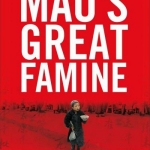
Excerpts from Cormac Ó Gráda’s review of new book by Dikötter, Mao’s Great Famine. “MGF may become the best-known account of the GLF famine for a while. But should it? It is not a comprehensive account of the famine; it is dismissive of academic work on the topic; it is weak on context and unreliable with data; and it fails to note that many of the horrors it describes were recurrent features of Chinese history during the previous century or so…”
Contemporary China, LangYan, Reviews »
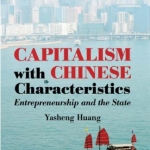
Joel Andreas reviews Huang Yasheng’s Capitalism with Chinese Characteristics in the latest New Left Review, which also contains a response from Huang.
Andreas: “Huang’s diagnosis of the maladies afflicting rural China is clearly informed by one of the foundational myths of neo-classical economics—the ideal of competitive capitalism. Free competition, it is assumed, creates a level playing field on which small entrepreneurs naturally flourish. If small entrepreneurs are squeezed out, it must be the fault of the state, which tips the playing field to the advantage of favoured players. The reality is quite different. Market competition intrinsically centralizes property without the need for state intervention. Winners squeeze out losers, amass capital, capture market share and block new entrants. The state often facilitates this process by favouring the winners, but it can also inhibit it by protecting the weaker players. Over the last two centuries, peasants and small rural entrepreneurs have been the main losers as capitalism has swept across the globe.”
Chinese Revolutionary History, jj blog, Reviews »
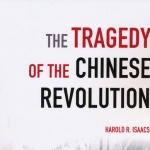
Haymarket books has just reprinted Harold Isaacs‘ 1938 work on the ‘second’ Chinese revolution (1925-27): The Tragedy of the Chinese Revolution.
The book has gone through three editions, and Haymarket is publishing the first (more on this anon). The entire first edition is available online at marxists.org, but who among you dear readers doesn’t hanker after the pleasure of real paper in your hands?
The book was the first work of its kind to examine the minutiae of the 1925-1927 revolution. Isaacs spent four years writing the book, and it shows. It’s …
jj blog »
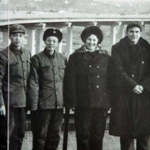
I don’t think CSG has yet mentioned the recent biography of Joan Hinton: Silage Choppers and Snake Spirits, written by Dao-yuan Chou and published last year in the Philippines by Ibon Press. Unfortunately the book is devilishly hard to come by unless you’re in the Philippines, or have some connection to ‘the Hinton farm’. I’m still waiting for my copy, but the web reviews I’ve seen suggest the book is well worth reading. See:
John Sexton’s review at China.org.cn and Bobby Tuazon’s review at Bulatlat.
UPDATE: G. has pointed out a number of other reviews of the book that came out last summer:
Bernard Karganilla in Malaya; reviews by Giovanni Tapang and Elmer A. Ordoñez in the Manila Times, and and a review from
Faura Online
Very reliable sources say the farm is out of copies, as is the publisher, at least until the next printing.
Six copies of the book are available for $21 (as of 12 hours ago) at Eastwind Books in Berkeley CA, confirmed in a phone call to the store by S.
Thanks for the info everyone!
Chinese Left, Chinese Revolutionary History, Husunzi, Reviews »
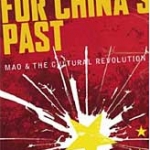
Comments on Chris Bramall’s review of The Battle for China’s Past by Mobo Gao. In this review Bramall makes some criticism that I think Mobo would appreciate, and which may be important for thinking about how to assess PRC history in general. Unfortunately Bramall’s own perspective is limited his developmentalism – that is, his commitment to a vision of economic and social development that, while critical of inequality, assumes the inherent goodness and necessity of things like continued urbanization, increasing labor productivity and output, and – apparently – the industrialization of agriculture and the disappearance of peasant farming.
